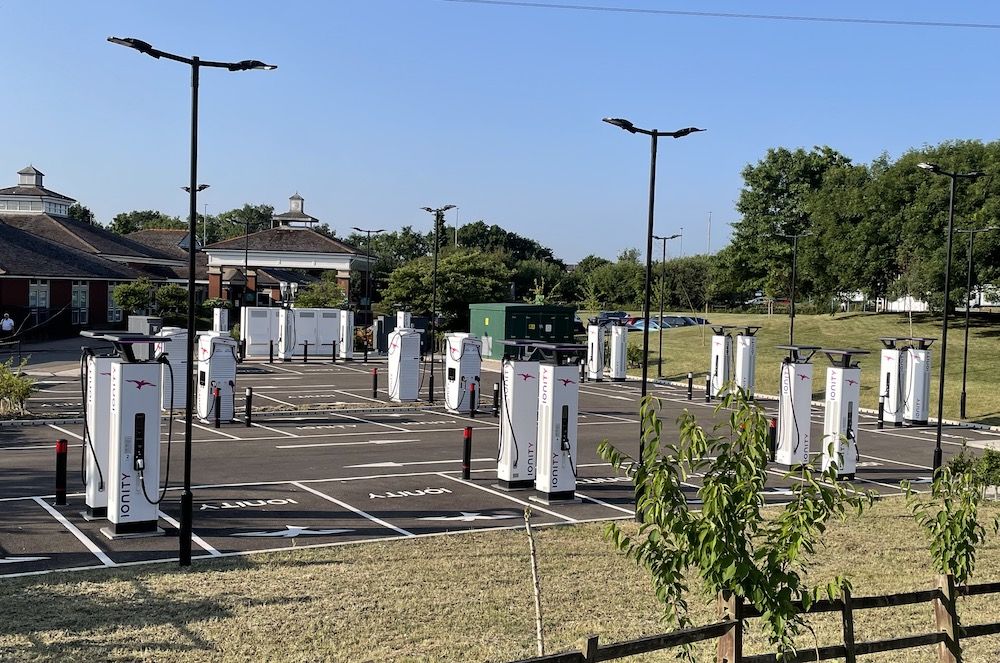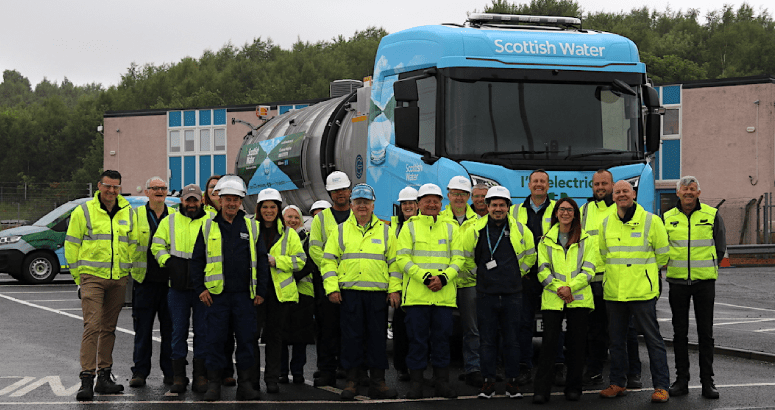Fibre optic sensing technology that can detect vehicle movements using standard telecom fibres that run next to the roadside is being used to improve air quality in Staffordshire.
Staffordshire County Council (SCC) are working with Amey and Fotech to carry out a trial which is being carried out as part of the Department for Transport funded £22.9 million Association of Directors of Environment, Economy, Planning & Transport (ADEPT) SMART Places Live Labs programme.
Fibre optic sensing technology is a unique way of detecting vehicle movements using standard telecom fibres that run next to the roadside. Vehicles travelling in each direction along the road parallel to the fibre sensor induce vibrations into the ground and through to the fibre. The vibrations influence the light travelling in the fibre and these disturbances are detected by Fotech’s Distributed Acoustic Sensing, (DAS) system.
Monitoring of the fibre can determine the location, velocity and relative weight of the vehicles and therefore traffic queues can be identified, and the heavier, potentially larger polluters can be identified. When this data is sent to the traffic control system and the right algorithms are applied, it can be used to help improve traffic flow by better control of the traffic lights at an intersection and reduce idling, breaking and acceleration, just some of the leading factors of air pollution from road transport.
Staffordshire County Council’s assistant director for connectivity and sustainability Clive Thomson said: “The use of fibre optic sensing to monitor traffic flows on our roads is another exciting development in our SMART Places Live Labs programme. Traffic queues can be a major contributing factor to air pollution in our communities and understanding where the problems lie using the latest technology will help us to find appropriate solutions to reduce it. We look forward to testing those innovative methods during the next phase of this trial.”
The fibre technology is being trialled at Cellarhead Junction. Data collected from the fibre trial and the sensors is being continually monitored and will be used to assist the SIMULATE team to monitor the solutions deployed to reduce the impact of poor air quality in the identified areas of Staffordshire.
Paul Rose, Technical Director at Amey Consulting said: “Working with Staffordshire County Council and Fotech to trial fibre optic sensing technology to improve air quality, is another unique way our teams are gathering data that can be used to make decisions on infrastructure that will ultimately reduce traffic congestion and therefore emissions in Staffordshire. This could be a significant breakthrough in ITS technology.”
Collecting data from the Fotech trial and the air quality sensors is the first step for the SIMULATE programme before trialling and testing innovations in air quality solutions, such as living walls and air scrubbing technology, traffic light infrastructure that aim to enable future decisions to be made on how to effectively improve air quality, carbon capture and wellbeing benefits.
Giles Perkins, Programme Director for Live Labs said: “Using new technology to derive benefits from existing assets is at the core of the Live Labs programme. This innovative application in Staffordshire demonstrates how lateral thinking can help understand the impacts of vehicles on our networks and how we can mitigate them.”
Image: Shutterstock.














